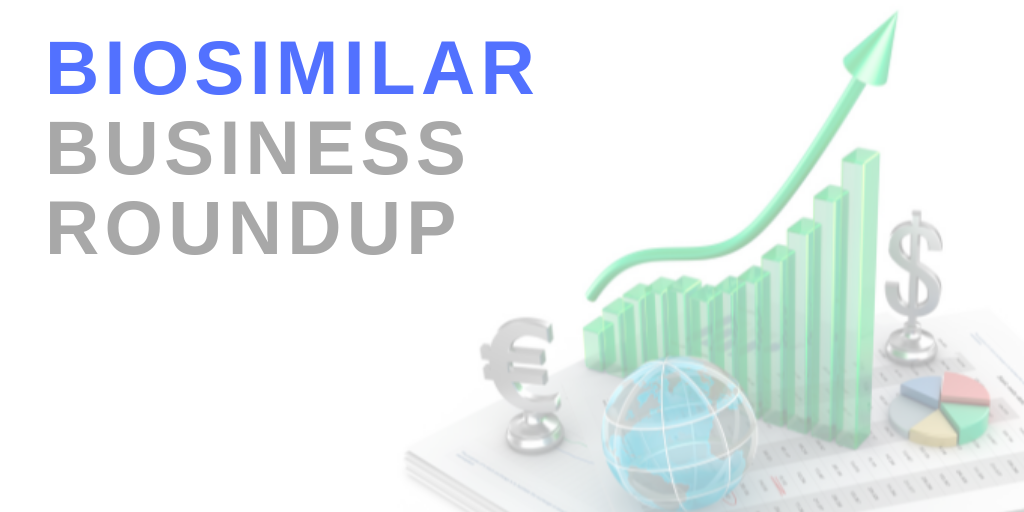- Bone Health
- Immunology
- Hematology
- Respiratory
- Dermatology
- Diabetes
- Gastroenterology
- Neurology
- Oncology
- Ophthalmology
- Rare Disease
- Rheumatology
Biosimilars Business Roundup: August 2024
With the end of the second quarter comes expense reports, new biosimilar business deals, and insights into how federal policy impacts biosimilar company pursuits.
With the end of the second quarter comes earnings reports, new biosimilar business deals, and insights into how federal policy impacts biosimilar company pursuits.

Earnings Report Bonanza
Sandoz reported a 29% increase in biosimilar revenues for the first half of 2024, driven by strong sales across its biosimilar portfolio, particularly in Europe and the United States. The company attributed this growth to its expanding product lineup and successful market penetration strategies. Representatives from the company said that this performance underscores Sandoz's commitment to leadership in the biosimilar sector, as it continues to invest in developing and launching new biosimilar therapies to enhance patient access to affordable biologic treatments.
Alvotech, another pure-play biosimilar company, reported a 10-fold increase in revenues for the first half of 2024, reaching $236 million, driven by the US launch Simlandi (adalimumab biosimilar) and the Canadian and Japanese launches of Selarsdi (ustekinumab biosimilar). Despite significant revenue growth, the company faced a net loss of $153.5 million, primarily due to finance costs related to debt adjustments. Alvotech also achieved key corporate milestones, including positive clinical results, expanded partnerships, and strategic refinancing to strengthen its financial position for future growth.
Formycon reported €26.9 million ($29.4 million) in revenue for the first half of 2024, driven by the commercialization of its ranibizumab biosimilar FYB201 (Cimerli) and development services for other biosimilars. This represents a decrease from the previous year, mainly due to fewer upfront and milestone payments. Despite the revenue drop, Formycon said it will continue to advance its biosimilar pipeline, with positive developments for FYB201, now available in 19 countries.
How the IRA Impacts Biosimilar Businesses and Other Regulatory News
CMS announced new negotiated prices for 10 drugs under the Inflation Reduction Act (IRA), including Stelara (reference ustekinumab) and Enbrel (reference etanercept), which will see discounts of 66% and 67%, respectively. The selected drugs accounted for $50.5 billion in Medicare costs. Reactions were mixed, with some praising the savings for Medicare beneficiaries, while others expressed concerns about the impact on biosimilar competition and drug market dynamics. The new prices will take effect on January 1, 2026.
Sandoz gained FDA approval for Enzeevu, an aflibercept biosimilar referencing Eylea, making it the fourth approved biosimilar for treating neovascular age-related macular degeneration. Enzeevu was also granted interchangeability, allowing it to be substituted for the reference product without provider consent. The approval was supported by a phase 3 study showing similar safety and efficacy to Eylea.
Manitoba implemented a biosimilars transition policy, making it the final Canadian province to adopt such a policy, aimed at expanding biosimilar use and reducing health care costs. Patients using one of 10 reference biologics must switch to a biosimilar by January 31, 2025, to maintain coverage under provincial plans. Similar policies in other provinces have generated significant savings while maintaining health outcomes. Despite concerns about the nocebo effect, extensive real-world data support the safety and efficacy of switching from originator biologics to biosimilars.
Other Business News and Vizient Market Insights
Celltrion's adalimumab-aaty (Yuflyma), a high-concentration biosimilar to Humira, is now available to all Costco members through the Costco Member Prescription Program, offering increased access and reduced costs. Meanwhile, Amgen has sued Samsung Bioepis, alleging patent infringement related to Samsung's denosumab biosimilar candidates for Prolia and Xgeva. GlycoNex, on the other hand, has advanced its denosumab biosimilar SPD8 to phase 3 trials following promising phase 1 results, aiming to provide a cost-effective alternative for osteoporosis treatment.
Lastly, the Vizient Pharmacy Market Outlook Report for summer 2024 forecasts a 3.81% overall drug price inflation for 2025, with notable increases for certain originator biologics facing upcoming biosimilar competition. Denosumab is expected to experience the highest price hike due to recent FDA approvals of its biosimilars. Formycon’s ustekinumab biosimilar and Lupin Limited’s ranibizumab biosimilar are making significant progress, with approvals and trials advancing.
The report also highlights that while biosimilars account for 23% of therapy volume, their market uptake is inconsistent. It underscores a broad increase in medication spending across various therapeutic areas, including autoimmune diseases, endocrinology, oncology, and neurology, with substantial growth in treatments for obesity and diabetes.
Newsletter
Where clinical, regulatory, and economic perspectives converge—sign up for Center for Biosimilars® emails to get expert insights on emerging treatment paradigms, biosimilar policy, and real-world outcomes that shape patient care.
